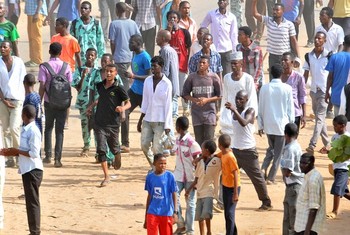NCP figure warns against ignoring youths in political dialogue
October 7, 2013 (KHARTOUM) – A leading figure in Sudan’s ruling National Congress Party (NCP) said that while violent protests that broke out this month may have subsided on the face of it, it has “deepened the layers of negative feelings and fear of the future”.

The Sudanese government has recently rolled out an economic package that triggered some of Sudan’s worst protests in recent years, with the death toll surpassing 200 according to Amnesty International.
Sudanese authorities say they have arrested 700 people in connection with the riots, but denied using live ammunition against protesters, accusing outside elements of firing at demonstrators.
Al-Attabani was one of more than 30 NCP figures who signed an open petition this month sent to president Omer Hassan al-Bashir urging him to reinstate fuel subsidies which triggered the recent demonstrations and end killings of protestors.
They also called on Bashir to embark on deep political and economic reforms.
The memo has angered Bashir who ordered that its signatories be probed by an ad-hoc committee he established and which is due to present its findings and recommendations in coming days.
Al-Attabani and other signatories have refused to appear before the panel, leading many to speculate that they will end up being fired from the NCP.
In his Facebook post, al-Attabani said that the recent protests revealed a new political map which must be taken into account by the government.
“The emergence of a youth class associated with social networking sites … those have become one of the most effective groups and any bypassing of them in the political dialogue or in the upcoming political equations would be a stupid act”, the former head of NCP parliamentary caucus wrote.
He urged the NCP leadership to take the new youthful force more seriously and encourage their involvement in the country’s political processes.
“Suspend tribal dialogue and open a dialogue with them. You may discover among them talents and projects of shining national leaders in the near future”, said al-Attabani.
“The Sudanese experience and other experiences confirm that in such circumstances, the only successful treatment is the political process. Even wise men from the security officers and its leaders believe in that themselves and recommend it”, he added.
(ST)
